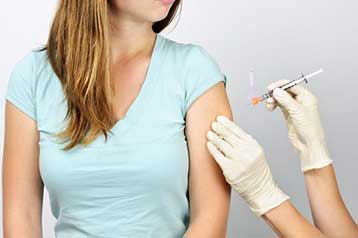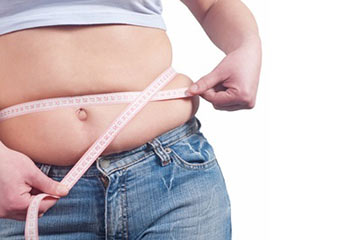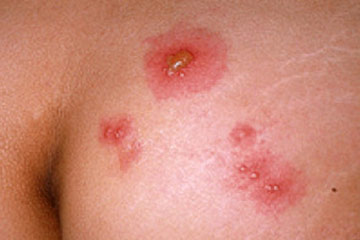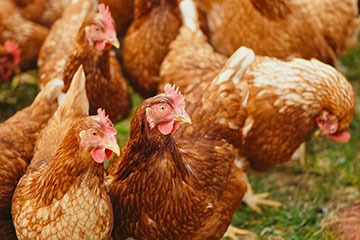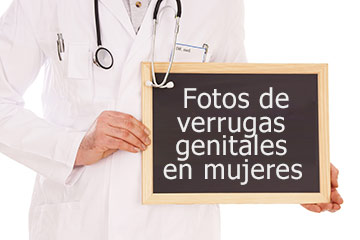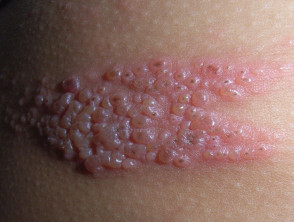Pet Food and Salmonella
A healthy diet is important for pets. But did you know that dry pet food, treats, and supplements can become contaminated with Salmonella, a harmful germ that can make both people and pets sick? To protect you and your pet from getting sick, it is important to know how to correctly purchase, handle, store, and behave when handling dry pet foods and treats.
Pets that eat contaminated food can carry germs even if they appear healthy. Salmonella germs can cause diarrhea in people, which can be mild, severe, or even life threatening. Young children under 5 years old, persons 65 years and older, and people with weakened immune systems are at higher risk for severe illness. With the proper attention to what you choose to feed your pet and how you feed them, you could keep you and your pets healthy and safe from germs found in pet food.
Pet food can make pets and people sick
Pet ownership has many positive benefits. Pets comfort us and give us companionship. But as much as we love animals, there are simple precautions we need to take to keep our family members, including our four-legged members, safe and healthy. Here are some tips to help protect you and your family.
Do not feed your pet a raw diet
- Raw diets consist of foods such as meat, poultry, milk, and eggs that have not been cooked or treated to remove harmful germs.
- These food items can carry harmful bacteria includingSalmonellaandCampylobacter.
Shopping for your pet? Here are some purchasing tips:
- Look at the package:
- Buy bagged food with no visible signs of damage to the packaging, such as tears or discolorations.
- Avoid buying canned food with dents.
- Avoid raw diets for your pets:
- CDC recommends against feeding raw food to dogs and cats because of the risk of illness to the pet as well as to people living in the household.
Serving up a meal for your pet? Here are preparation tips:
- Wash hands right after handling pet food and treats
- Washing your hands is the most important step to preventing illness.
- Wash your hands for 20 seconds with water and soap right after handling pet food and treats, and especially before preparing, serving or eating food, drinks or preparing baby bottles
Anuncios - When possible, feed your pet in areas other than the kitchen.
- Avoid washing your pet’s food and water dishes in the kitchen sink or bathtub in order to prevent cross-contamination.
- If there is no alternative, clean and disinfect the sink after washing pet food items. Infants should not be bathed in kitchen sinks because of the risk of cross-contamination.
- Do not use the pet’s feeding bowl as a scooping utensil – use a clean, dedicated scoop, spoon, or cup.
Storing pet food and treats? Here are storage tips:
- When possible, store pet food away from any area where human food is stored or prepared.
- If possible, store dry pet food in its original bag inside a clean, dedicated plastic container with a lid, keeping the top of the bag folded or closed.
- Store dry pet food and pet treats in a cool, dry place under 80 degrees F.
- Promptly refrigerate or discard unused, leftover wet pet food and containers (e.g., cans, pouches).
- Refrigerating foods quickly prevents the growth of most harmful bacteria. Refrigerators should be set at 40 degrees F. The accuracy of the setting should be checked occasionally with a refrigerator thermometer.
Feeding your pet? Here are feeding tips:
- When possible, avoid feeding your pet in the kitchen to prevent getting germs found in pet food on “people” food.
- Keep children 5 years and younger away from areas where pets are fed to help prevent illness and injury.
- Wash your hands right after feeding your pets.
Follow these simple guidelines to prevent getting a Salmonella infection from your pet:
- Wash your hands well with soap and running water right after contact with animals, their food, or their environments.
- Clean up after your pet.
- For dogs, pick up waste and discard it into a tightly sealed plastic bag.
- For cats, scoop litter daily and discard waste into a tightly sealed plastic bag.
- Place all waste into a closed trash can.
- Pet waste can contain bacteria, so young children should not clean up after pets.
- Remember to wash your hands right afterwards!
Children and pets:
- Young children are especially at risk for illness because their immune systems are still developing and because they are more likely than others to put their fingers or other items into their mouths.
- Children younger than 5 years of age should not be allowed to touch or eat pet food, treats, or supplements and should be kept away from pet feeding areas to prevent illness and injury.
- Adults should supervise young children when washing hands.
Source
Pet Food and Treats—Tips for Keeping People and Pets Healthy and Safe from Salmonella
Centers for Disease Control and Prevention
Related Topics
GeoSalud, october 13, 2012

